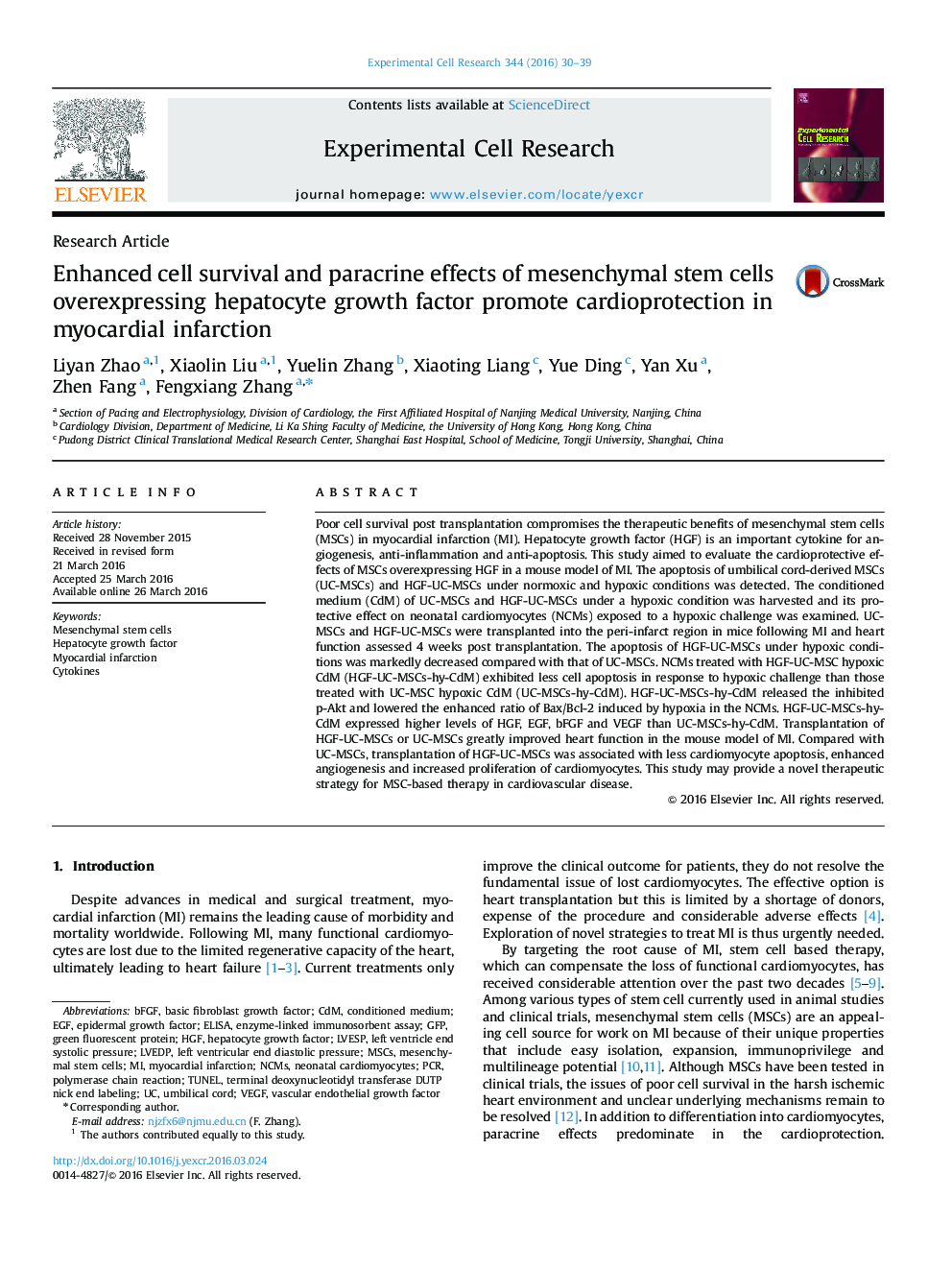| Article ID | Journal | Published Year | Pages | File Type |
|---|---|---|---|---|
| 2130015 | Experimental Cell Research | 2016 | 10 Pages |
Poor cell survival post transplantation compromises the therapeutic benefits of mesenchymal stem cells (MSCs) in myocardial infarction (MI). Hepatocyte growth factor (HGF) is an important cytokine for angiogenesis, anti-inflammation and anti-apoptosis. This study aimed to evaluate the cardioprotective effects of MSCs overexpressing HGF in a mouse model of MI. The apoptosis of umbilical cord-derived MSCs (UC-MSCs) and HGF-UC-MSCs under normoxic and hypoxic conditions was detected. The conditioned medium (CdM) of UC-MSCs and HGF-UC-MSCs under a hypoxic condition was harvested and its protective effect on neonatal cardiomyocytes (NCMs) exposed to a hypoxic challenge was examined. UC-MSCs and HGF-UC-MSCs were transplanted into the peri-infarct region in mice following MI and heart function assessed 4 weeks post transplantation. The apoptosis of HGF-UC-MSCs under hypoxic conditions was markedly decreased compared with that of UC-MSCs. NCMs treated with HGF-UC-MSC hypoxic CdM (HGF-UC-MSCs-hy-CdM) exhibited less cell apoptosis in response to hypoxic challenge than those treated with UC-MSC hypoxic CdM (UC-MSCs-hy-CdM). HGF-UC-MSCs-hy-CdM released the inhibited p-Akt and lowered the enhanced ratio of Bax/Bcl-2 induced by hypoxia in the NCMs. HGF-UC-MSCs-hy-CdM expressed higher levels of HGF, EGF, bFGF and VEGF than UC-MSCs-hy-CdM. Transplantation of HGF-UC-MSCs or UC-MSCs greatly improved heart function in the mouse model of MI. Compared with UC-MSCs, transplantation of HGF-UC-MSCs was associated with less cardiomyocyte apoptosis, enhanced angiogenesis and increased proliferation of cardiomyocytes. This study may provide a novel therapeutic strategy for MSC-based therapy in cardiovascular disease.
